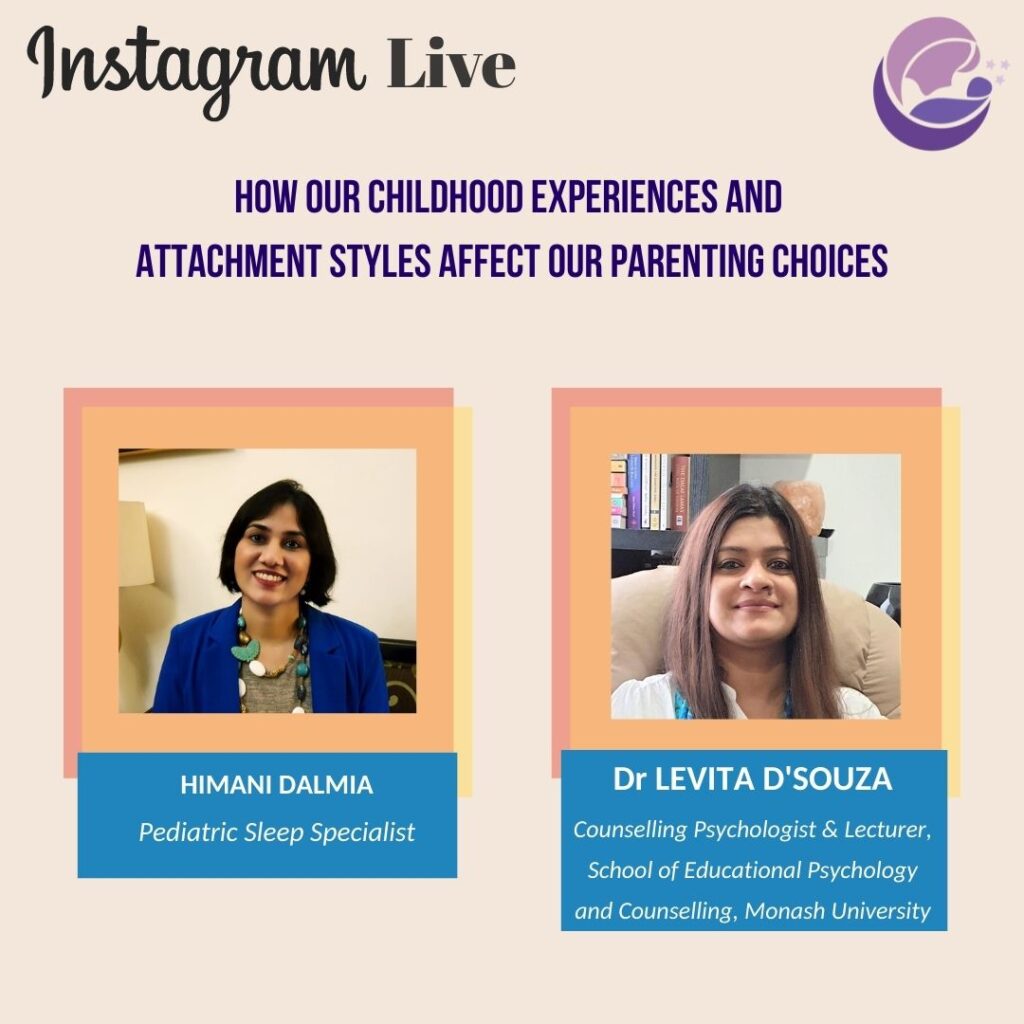Instagram Live with Dr. Levita D’Souza

Instagram Live with Dr. Levita D’souza I had a riveting conversation with Counselling Psychologist and Researcher, Dr Levita D’Souza, on
Why does my baby wake up when I put her down?

Why does my baby wake up when I put her down? It’s a familiar scene. Your baby has drifted off
5 Parenting Books I Love

5 Parenting Books I Love 1. Kiss Me! by the Spanish paediatrician Carlos Gonzalez This is a deeply researched, wittily
